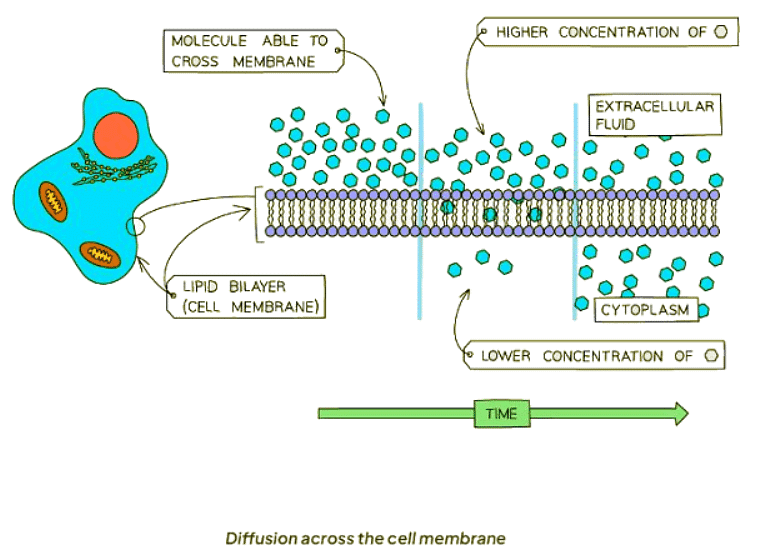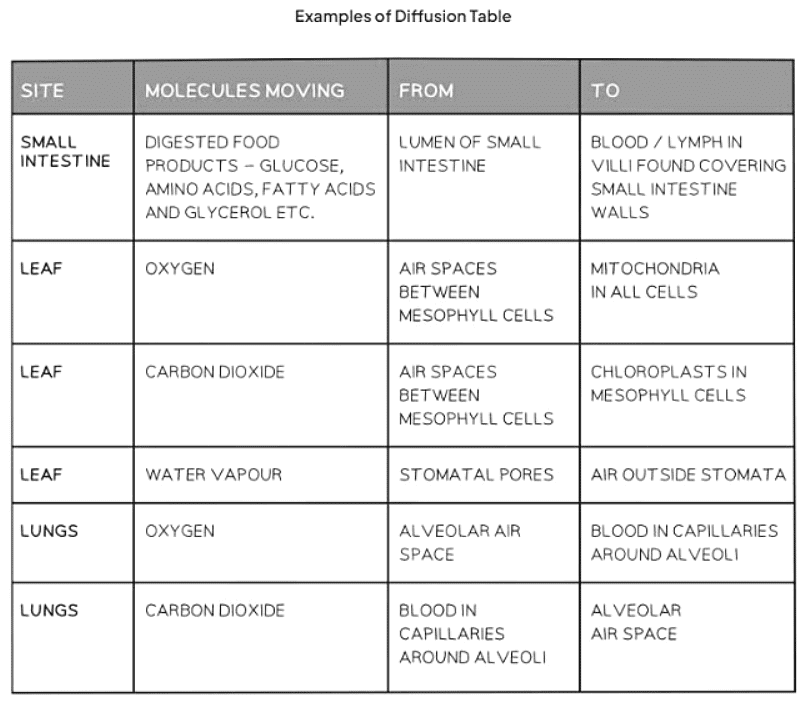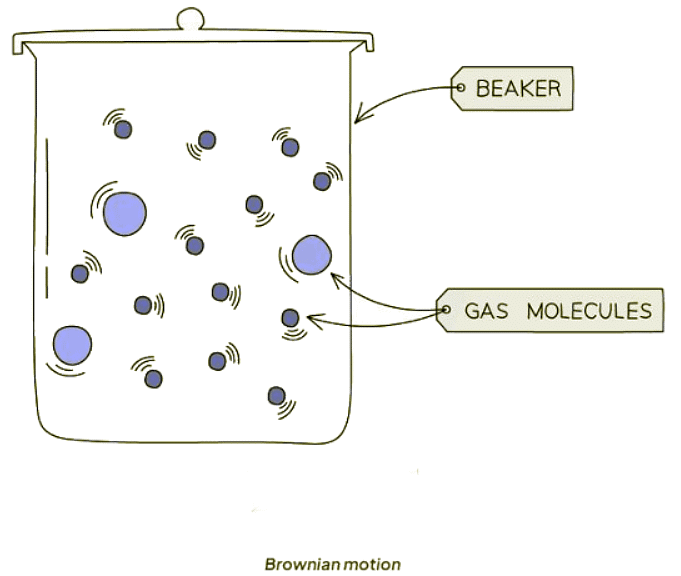Class 10 Exam > Class 10 Notes > Biology for GCSE/IGCSE > Diffusion in Biology
Diffusion in Biology | Biology for GCSE/IGCSE - Class 10 PDF Download
Diffusion in Biology
- Diffusion is the movement of molecules from a region of its higher concentration to a region of its lower concentration. Molecules move down a concentration gradient, as a result of their random movement.
- Diffusion is the movement of molecules from a region of its higher concentration to a region of its lower concentration.

- In living cells, the concept of movement along a concentration gradient remains consistent, but the presence of a cell membrane poses restrictions on the free movement of molecules.
- The cell membrane acts as a semi-permeable barrier, permitting some molecules to pass through easily while impeding others or blocking them entirely.
- The initial form of selection is typically determined by the size of the molecules.
- Diffusion aids living organisms in:
- acquiring various necessities,
- eliminating numerous waste substances, and
- facilitating gas exchange required for respiration.
Examples of diffusion in living organisms
- Familiarize yourself with instances of substances that organisms acquire through diffusion.
- Remember that plants continually need oxygen for respiration, along with carbon dioxide for photosynthesis under favorable conditions (such as adequate light and appropriate temperature).

Where does the energy for diffusion come from?
- All particles exhibit random movement continuously.
- This phenomenon is termed Brownian motion.
- The kinetic energy derived from this random movement of molecules and ions is the driving force behind diffusion.

Question for Diffusion in BiologyTry yourself: Which of the following is an example of diffusion in living organisms?View Solution
The document Diffusion in Biology | Biology for GCSE/IGCSE - Class 10 is a part of the Class 10 Course Biology for GCSE/IGCSE.
All you need of Class 10 at this link: Class 10
|
110 videos|210 docs|33 tests
|
FAQs on Diffusion in Biology - Biology for GCSE/IGCSE - Class 10
| 1. What is diffusion in biology? |  |
Ans. Diffusion in biology is the process by which molecules spread from an area of high concentration to an area of low concentration, in order to achieve equilibrium.
| 2. How does diffusion occur in cells? |  |
Ans. Diffusion in cells occurs through the cell membrane, where small molecules can pass through freely, while larger molecules may require the assistance of specific transport proteins.
| 3. What factors affect the rate of diffusion? |  |
Ans. The rate of diffusion is affected by factors such as the concentration gradient, temperature, surface area, distance traveled, and the size and nature of the molecules involved.
| 4. Can diffusion occur in both liquids and gases? |  |
Ans. Yes, diffusion can occur in both liquids and gases. In liquids, molecules move from areas of high concentration to low concentration, while in gases, molecules spread out to fill the available space.
| 5. How is diffusion important for biological processes? |  |
Ans. Diffusion is essential for biological processes such as the exchange of gases in the lungs, absorption of nutrients in the intestines, and the movement of substances in and out of cells.
Related Searches















